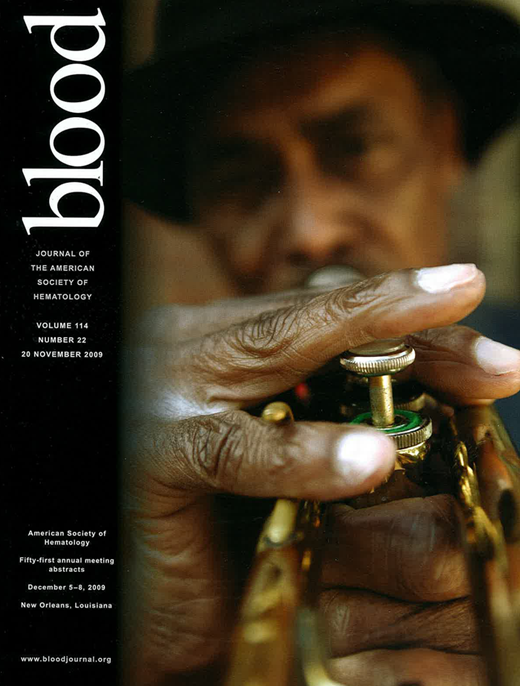Abstract
Abstract 616
We have shown the three drug combination of cyclophosphamide, bortezomib and dexamethasone (CyBorD) to be highly active therapy in newly diagnosed myeloma while allowing stem cell harvest and transplantation (Reeder et al. Leukemia 2009; 23:1337-1341). However, twice weekly bortezomib and high dose dexamethasone have been shown to cause significant toxicities. In a prospective Phase II we modified CyBorD by using bortezomib once weekly and reducing the dexamethasone to “low dose dex” after the first two cycles in an attempt to reduce toxicity (cohort 2). We report the efficacy and toxicity of this modified regimen and compare the results to standard CyBorD (cohort 1).
63 untreated symptomatic patients were enrolled on this Phase II trial (33 on cohort 1 and 30 on cohort 2). All are evaluable for response and toxicity. Treatment on cohort 2 consisted of oral cyclophosphamide 300 mg/m2 and IV bortezomib 1.5 mg/m2 days 1, 8, 15 and 22 and dexamethasone 40 mg by mouth days 1-4, 9-12, 17-20 in cycles 1 and 2, then 40 mg po days 1, 8, 15, 22 in cycles 3 and beyond. Cohort 1 used standard dosing of bortezomib and high dose dexamethasone throughout. Each cycle was 28 days. Acyclovir and a quinolone antibiotic prophylaxis were routinely used. Patients were evaluated for response and toxicity every cycle and were offered stem cell harvest and transplant after the 4th cycle but could continue up to 12 cycles maximum.
The median age for all 63 patients was 61 (36-74) years and 48% were female. Durie-Salmon stages were 47% II and 50% III and ISS stages I 43%, II 36%, and III 21%. Twenty-four percent of patients were genetic high risk (t(4;14) or deletion 17). Cohorts I and II were matched for age, gender and ECOG PS. ISS stages were higher in cohort 1 than cohort 2 (II/III 67% vs. 44%). The intent to treat (ITT) ORR (≥PR) for all 63 patients (cohorts 1 and 2) is 90% with 60% ≥VGPR. For cohort 2 (modified CyBorD) the ITT overall response (≥PR) was 93% (CR: 5, nCR: 7, VGPR: 6, PR: 10) with 60% ≥VGPR and 40% ≥ nCR. Those completing all 4 cycles of therapy had 92% ORR (24/26) and 65% (17/26) ≥VGPR. A comparison of response rates in cohorts 1 and 2 is shown in table 1. These high and comparable response rates were associated with fewer grade 3+ adverse events (AE's) than in cohort 1 (37% vs. 48%) and no grade 3 peripheral neuropathy (PN). The median follow-up for all 63 patients is 12.4 (2.8-29.2) months and 95% of patients are alive with 87% free from progression.
Response and Toxicity
| . | Cohort 1 (CyBorD) . | Cohort 2 (Modified CyBorD) . | All patients . |
|---|---|---|---|
| Response ITT | N = 33 | N = 30 | N = 63 |
| ORR ( ≥PR) | 29 (88%) | 28 (93%) | 57 (90%) |
| ≥VGPR | 20 (61%) | 18 (60%) | 38 (60%) |
| CR/nCR | 13 (39%) | 12 (40%) | 25 (40%) |
| Response after 4 cycles | N = 28 | N = 26 | N = 54 |
| ORR (≥PR) | 27 (96%) | 24 (92%) | 51 (94%) |
| ≥VGPR | 20 (71%) | 17 (65%) | 37 (68%) |
| CR/nCR | 13 (46%) | 12 (46%) | 25 (46%) |
| Toxicity | |||
| Grade 3 AE | 48% | 37% | |
| Grade 4 AE | 12% | 3% | |
| PN Grades 1 and 2 | 19 (58%) | 17 (57%) | |
| PN Grade 3 | 2 (6%) | 0 (0%) |
| . | Cohort 1 (CyBorD) . | Cohort 2 (Modified CyBorD) . | All patients . |
|---|---|---|---|
| Response ITT | N = 33 | N = 30 | N = 63 |
| ORR ( ≥PR) | 29 (88%) | 28 (93%) | 57 (90%) |
| ≥VGPR | 20 (61%) | 18 (60%) | 38 (60%) |
| CR/nCR | 13 (39%) | 12 (40%) | 25 (40%) |
| Response after 4 cycles | N = 28 | N = 26 | N = 54 |
| ORR (≥PR) | 27 (96%) | 24 (92%) | 51 (94%) |
| ≥VGPR | 20 (71%) | 17 (65%) | 37 (68%) |
| CR/nCR | 13 (46%) | 12 (46%) | 25 (46%) |
| Toxicity | |||
| Grade 3 AE | 48% | 37% | |
| Grade 4 AE | 12% | 3% | |
| PN Grades 1 and 2 | 19 (58%) | 17 (57%) | |
| PN Grade 3 | 2 (6%) | 0 (0%) |
Modified CyBorD with weekly bortezomib and reduced dexamethasone retains the high activity seen in standard CyBorD, but is less toxic and more convenient. Interestingly, this modified regimen allowed higher overall doses of bortezomib (5.2 vs. 6.0 mg/m2 per cycle) yet overall neuropathy rates were similar. This combination of a weekly alkylating agent with bortezomib and dexamethasone is well tolerated and produces high response rates in newly diagnosed patients with multiple myeloma.
Reeder:Millennium (MPI): Research Funding; Celgene: Research Funding. Reece:Ortho Biotech: Honoraria, Research Funding. Chen:Celgene: Honoraria, Research Funding; Ortho Biotech: Honoraria. Hentz:Millennium (MPI): Research Funding. Fonseca:Otsuka: Consultancy; BMS: Consultancy; Amgen: Consultancy; Medtronic: Consultancy; Genzyme: Consultancy. Bergsagel:Merck: Research Funding; Amgen: Consultancy; Genentech: Consultancy; Celgene: Consultancy. Stewart:Proteolix: Honoraria; Millennium (MPI): Research Funding.
Author notes
Asterisk with author names denotes non-ASH members.

